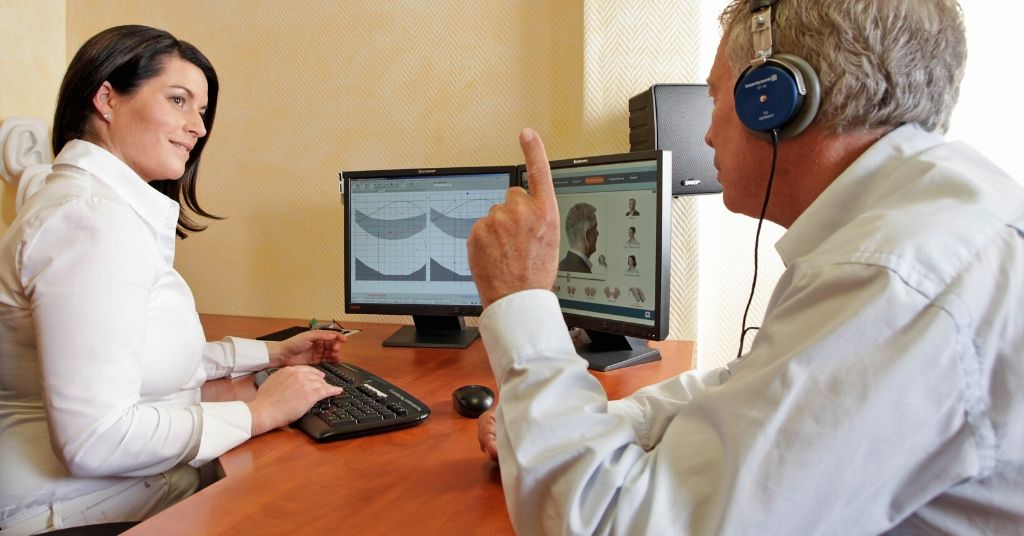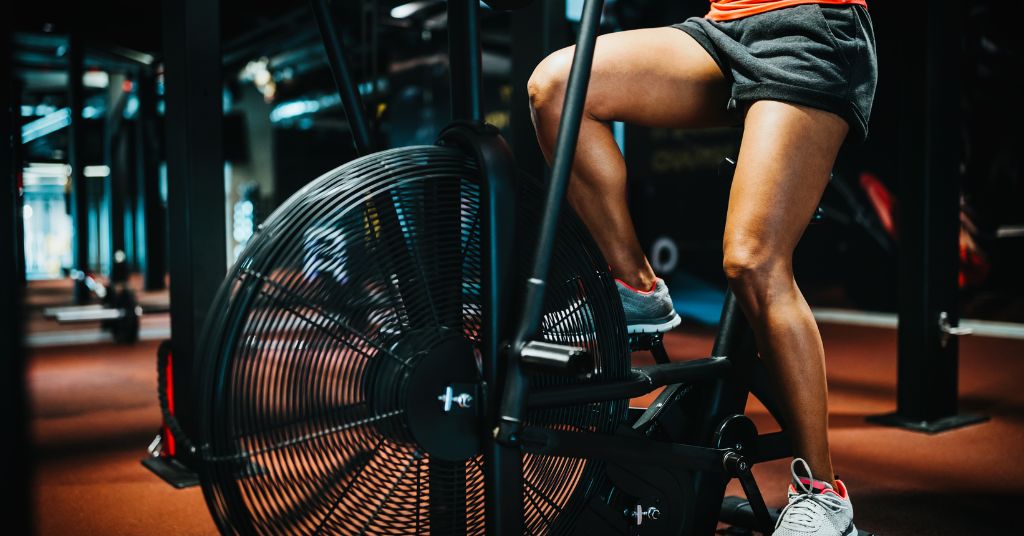
Real Housewives star gets Phonak CROS hearing aid
March 18, 2016
#DeafTalent model Nyle DiMarco wows on Dancing with the Stars
March 22, 2016How what I eat affects my sinuses… and my hearing

Wearing a hearing aid has taught me a lot about sound, especially the sound of my own voice. Returning to work as a speaker, singer, voice artist and actor, I am keenly aware again of how my voice sounds – its tone, clarity, resonance, pitch, texture and fullness (or lack thereof).
Any hitch in my voice is immediately noticeable, live or on a recording, so I work hard to enunciate clearly. I record my voice often and practice articulation and intonation. In fact, I’m one of those people you see walking down the street talking to himself. Please wave if you see me.
I wasn’t always so vigilant and never so much since I lost my hearing. At first, I was lazy, working just hard enough to hear without paying much attention to the quality of my voice. Additionally, I have one-sided hearing, which limits my experience further. My hearing aid changed how and how fully I hear my voice and it took me a long time to hear it the way I needed to be able to take up music again.
That has forced me to pay attention to things I once took for granted. I consider myself fortunate that with aural rehab, listening exercises, new hearing technology and voice work I am hearing better, and employ muscle memory, breathing and vocal technique to make fuller, clearer sounds with my voice as well.
This brings me to something called “head tones” – a part of the vocal range or register – or most important to me, a vocal “resonance area.” You know what you sound like when you have a cold or an allergy? Now try to sing. You “thoud like thumpthink is in your thinuthes,.” right? Something may very well be in your sinuses and found its way to your ears and throat as well. When that happens, head tones get very cloudy and it’s as if you’re in a tunnel or underwater – “glubbink” instead of “speaking.” Or singing.
For most of my years performing I didn’t think about my voice, as it provided the sound I wanted without much attention. And, for many years after losing my hearing, I did not listen to music. Then, one day I decided to listen to an old tape of my voice recorded in 1978, the year I began losing my hearing. At that time I was writing and singing advertising “jingles” in New York City. A colleague asked me to write some music to lyrics she had written for a pop song and I went to work. Sometime later we went into the studio and I put down the vocal track. I never heard it again until that day many years later. What I heard struck me.
It didn’t sound like me. Rather, it sounded like me with a “full stuffy head.” Not a cold, not an allergy but a rock hard fullness in my head/sinuses that muffled my voice – a dull thud rather than a pleasant resonant sound. It seemed as if my sinuses were jammed and did not allow me to sing openly or clearly with much power. I sang the melody fine but underneath was this river of cotton. I was “thingink” and “glubbink,” not singing.
In my search for the origin of my hearing loss I wondered if my clogged sinuses were another stepping stone on the path. I Googled and found this: that clogged sinuses, especially from a condition called sinusitis can cause stuffiness, ear pressure, pain dizziness and discomfort – the very menu of conditions I remember well.
But hearing loss?
It turns out that sinus related conditions can be acute and can lead to hearing loss – usually temporary, but sometimes permanently if not treated immediately. The strategy is to clear up any infection in the sinuses before if spreads to the ears. It’s interesting to note that among the recommendations with sinus infections is to avoid caffeine, salt, alcohol, and tobacco products. “These can affect your circulation. Minor changes in blood flow can also affect your ears.”
I made the decision then to try and brighten my head tones by paying attention to my sinuses. By this time I had already made several changes in my health regime and diet but continued to notice that my sinuses can become stuffed up if I ate or drank too much of the “wrong” things, or stayed too long in a smoky or otherwise unfiltered environment. I also became more aware of how those things could cause my hearing to fluctuate. I was further inspired by my desire to support my return to making music.
Following up on the recommendations to treat sinusitis, here are some thoughts from my own experience. Disclaimer: I am not a doctor. These are my experiences only and are not to be viewed as recommendations for you.
Meet the “Gunksters”
These are the usual suspects that can gunk up my sinuses, cut down the resonance in my voice, cause ear pain and fullness, and/or limit my ability to hear clearly. Most of these you know.
Highly processed foods (a.k.a: junk food) 
What’s junk food to you? I know what it is to me. And I love it on occasion but am careful (sometimes) with how much and how often I enjoy it. What’s your poison?
Milk products

I do not drink milk, limit yogurt, enjoy ice cream on occasion, have a little half and half in my coffee and enjoy some cheeses but limit cream and milk-based products like soups and sauces.
Bread and Yeast Products
There is nothing I like more than my breads and pastries and a good muffin with some tea or coffee but I often pay the price. Just thinking about flour, rising yeast, doughy breads and my sinuses beg for mercy. Unfortunately I love the smell and taste of good breads and love them too much on a regular basis. Different breads and flour products affect me differently and not all create stuffiness. I know what works. And what congests.
Alcohol
I am not a drinker of spirits but I enjoy wine and beer. And I know the differences and what affects me. White wines and red wines in general treat me differently but more importantly are the additives and preservatives in domestic and imported wines that give me trouble. You have to ask your package/liquor store experts about “clean” wines and beers. Several countries are known for their additive “freer” beverages, but I can tell pretty quickly simply by sniffing the glass. I sometimes call the vintner to ask direct questions.
Fatty foods
There are many kinds of fat and fatty foods are often just fine for my sinuses. I use butter, ghee, a variety of oils, avocados, coconuts, nuts and seeds and nut and seed butters, and peanut butter. Once again overuse can make me sound as if I am talking while wearing a snorkel mask.
Ice cold food and caffeinated drinks
Many of these foods and beverages can cause ear pain. I love caffeine, but too much iced coffee can be trouble for me. In fact too much caffeine from any source can cause ear pain and stuffiness. I stay away from soda, soft drinks and beverages that are full of sugar and high fructose corn syrup.
Sweets
I love my dark chocolate daily and am careful with sweets in general. No, that’s a lie. I love any sweet wrapped in flour – cookies, pies, cakes, pastries – and each have different effects on me.
There’s also over the counter or prescribed medications and the many other ingredients found in packaged, processed, prepared and restaurant food– the fillers, artificial flavors and colors, sweeteners, trans fats, enhancers, preservatives and others. My skeptical self tells me these may affect the sinuses as much as any particular food or combination. Certain ethnic foods and their herbs, spices, and additives like MSG can suit me just fine, or guarantee a snout-ful. I’d like to see more research into that side of the food/health/hearing equation.
The truth is, there are very few things I won’t eat and enjoy. Years of trial and error have taught me that quality counts, the amount and frequency of use is important, and cooking for myself is superior (if less exciting) to consuming prepared, processed, packaged or restaurant food where I have no control over the ingredients. Knowing how foods affect me is not only good for my sinuses, it’s been good for my overall health.
And of course, it’s not just food. There’s fresh air, sunlight, exercise, stress reduction, breathing exercises and good thoughts to keep the sinsuses functioning well, too. Here’s a suggestion: be mindful of your voice and record it every now and then, then listen for any interference in your sinuses.
Finally, when I do get the occasional “head cold”, I back off on the “gunksters” and do not medicate myself, except in an emergency or as a last resort. I check any over the counter or prescribed medications for ototoxicity and other side effects. I have learned to express, not suppress, my colds. I find that blowing my nose and coughing are preferable to suppressants. I help to express my colds with hot teas, soups and rest, much like all of us do. My head colds last a very short time and I feel clean and full of energy afterwards with no drug hangover.
Coda: Last evening I enjoyed a couple of glasses of a nice California Rose and woke up with a full head. “I hate wed that happitz.”
Have you experienced any issues associated with your sinuses and hearing loss and/or current hearing experience?










